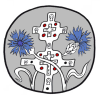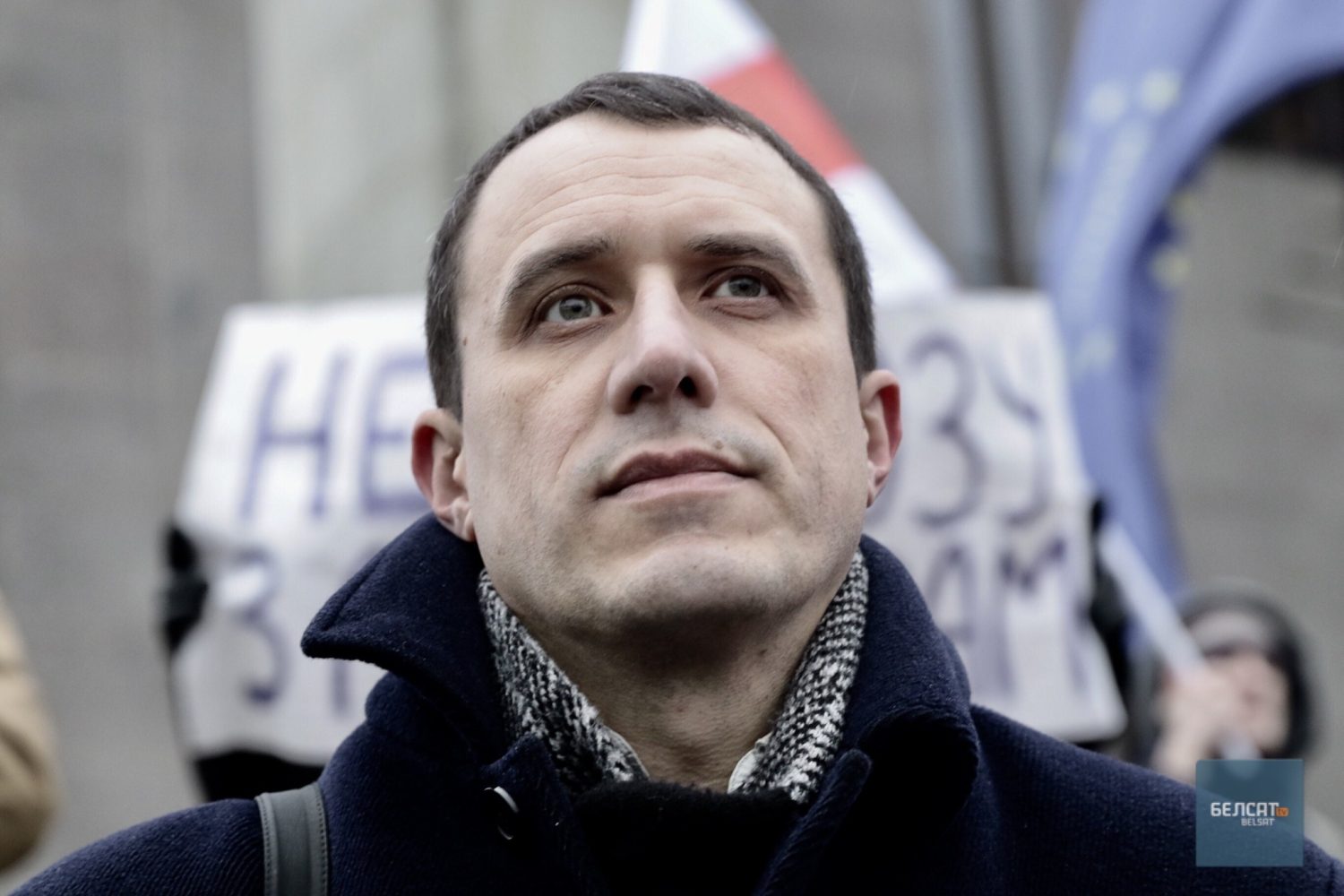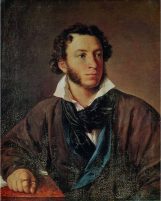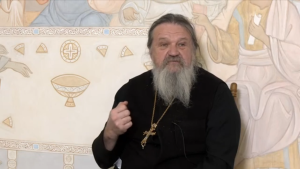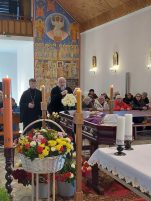Alfons Bruening. Pastoral Care and Citizenship: Orthodoxy in Belarus at a Crossroads

Responding to: Orthodoxy in the Belarus Protests
Among the protesters on the streets in Belarus there are probably many Orthodox Christians, although few make themselves visible as such. President Lukashenko’s rather aggressive call for the churches to avoid political interference can be read as a sign of the growing importance of the churches’ voice, but also of an increasingly threatening level of confrontation. Earlier on, the Orthodox church appeared to be a pillar of public order the regime could count on. Belarusian Orthodoxy is closely linked to the Moscow Patriarchate. Since 2003, there has been a concordat between the Orthodox Church and the Belarusian state, which guaranteed the legal status of the church and underlined the need for church-state cooperation in areas of social welfare and culture, to the benefit of Belarusian society. It is worth noting that the society in this comparatively brief text remains a completely passive entity, and any allusions to something as a civil society with private initiatives or NGOs remain distant.
Against this background, the Orthodox Church in Belarus has apparently been badly prepared to meet the protests and respond adequately. First reactions from the hierarchs after the election had been as always, with immediate and quasi-automatic congratulation addresses to President Lukashenko from both Metropolitan Pavel and Russian Patriarch Cyril. When protests took larger scale, there came an intentionally tranquilizing admonition from the bishop’s synod to refrain from violence and to enter into dialogue. With its expressive impartiality and even partial adoption of the regime’s rhetoric, such a message under the circumstances could at best be regarded as well-intended but meaningless. It therefore caused major disappointment among the believers. The only exception within the ranks of the hierarchy was Archbishop Artemii of Grodno and Volkovysk, who in his public sermons vigorously condemned the brutality of the regime and called for immediate release of the prisoners.
That might have seemed as an exception confirming the rule, but actually even among the hierarchs the rule itself has become uncertain. Metropolitan Pavel later reluctantly joined the protests and took part in public prayers for the imprisoned, only to be released from office in Moscow shortly afterwards. His successor, Metropolitan Veniamin of Minsk, brings with him the personal advantage of being an ethnic Belarusian, but he is also known as a clear opponent to granting autocephaly (independence) to the Belarusian Orthodox Church. He is also known as a “non-political” person, from whom we would not expect seemingly dangerous calls for public resistance.
It needs to be seen whether such an attitude proves sufficient. The public prayers Pavel had joined took place on grassroots initiatives, which mainly came from parishioners and ordinary priests. Orthodox parish priests were among the first to express open protest to the faked election results and the brutality against the protestors that followed. It was also the parish priests who organized help for the imprisoned in Minsk and other cities, calling for public prayers and processions in support of the protest.
However, a closer look reveals the inner-conflict in which many among the priesthood find themselves. Protests by priests on social media were not shared by many, even after the timely blockade of the internet had been reversed. Readers also questioned whether protest by priests would threaten public order—in a word, whether the protests were too “political” for clerics. Furthermore, there were also many examples of priests and monks openly supporting the regime and condemning the activities of their fellow clergy. A repeated argument with this faction is again that priests are not supposed to deal with politics and that those who supported the protestors would violate the rules of their clerical estate. Even a well-known personality like priest Aliaksandr Shramko, who had been banned from church service due to his public critique on Moscow Patriarch Cyril two years before, expressed his—and generally the church’s—clear support for the protestors in word and deed, but at the same time he felt urged to emphasize that the church does not intend to deal with political business: At the given moment, however, it needs to raise its prophetic voice as testimony for the truth.
Generally, there is an obvious uncertainty among many protestors about what priests and Orthodox believers are allowed to do in times of political unrest. Where does prophecy end and turn into mere political business? This problem is not exclusively Belarusian. The statements of the Belarusian clerics, bishops, and priests alike betray a certain similarity with the open letter issued in February 2020 by some Russian priests in protest against excessively harsh court sentences for a number of protestors in Moscow. Notably, the 200 signatories call for an adequate and measured application of given laws, as the opposite would undermine trust in the legal system and thus threaten public order. They do not question this legal system as such or ask for any revision. In all such statements, one finds the invocation of biblical sentences but hardly any reference to more abstract concepts such as human rights, although the violation of the latter is obvious in all the cases addressed.
The issue of church-state relations overlays broader debates on political theology in the Orthodox world. Whereas in large parts of Orthodox Christianity recent years have seen intense discussion about what might be called an “Orthodox political theology,” such attempts have always met extreme skepticism within Russian Orthodoxy. “Political Orthodoxy” within the Russian, or perhaps more generally in the post-Soviet sphere, is established as a rather negative term, usually applied first and foremost to fundamentalists and right-wing radicals. In a slightly broader sense, since the Ukrainian crisis, the term has acquired the meaning of faith distorted and blinded by alien ideological causes such as nationalism and liberalism. Such distorted faith would no longer be a means to peace and conflict de-escalation, as Orthodoxy in particular was supposed to be. Rather, it would be a fire accelerator driving people into violence and ultimately war. The Belarusian clerics are also shaped by this discourse, which explains why they are sometimes eager to avoid any corresponding suspicion.
The assessment of a suitable position of Orthodox theology towards politics and political ideologies is part of a general movement in Orthodoxy to come to a coherent social concept, which would form both an appropriate response to modern developments and serve as a match to Roman Catholic and Protestant forerunners. The Russian Orthodox Church offered a pioneering document in 2000, The Basis of the Social Concept, followed in 2008 by a document clarifying its attitude towards “dignity, freedom and human rights.” The documents have attracted criticism and provoked discussion with their inherent emphasis on stability and public morality, uniform vision of society, and ambivalent relation to human rights. In recent years, other social documents within the Orthodox world appeared as alternatives, such as those published in connection with the Pan-Orthodox Council on Crete in 2016 or the recent document by the Greek Orthodox Archdiocese of America. These documents have different accents—with unconditional support for human rights, approval of freedom as not only a spiritual but also a civil and political category, and positive attitudes toward civil society.
For members of the Russian Orthodox church, both clerics and laypeople, the Basis of the Social Concept can be regarded as having widely shaped the discourse on political Orthodoxy since 2000. Its chapters on church and politics propagate far-reaching loyalty to the state and only allow resistance in the case of extreme contradiction between state action and church tradition. The possibilities for independent initiatives and the emergence of NGOs, the defense of abstract concepts like human rights that might on occasion go beyond the limits of Orthodox tradition, or active, even moderate, participation in political processes are rather limited. In this sense, there is no real tension between the Basis of the Social Concept and the reality of Belarus in recent decades, as it was shaped, among others factors, by the 2003 concordat.
The concept therefore offers little theoretical assistance to priests and believers like those in Belarus, who are faced with a dilemma. The dilemma is that a sentence like “The church does not deal with politics” in itself can be a political statement, which would allow for a variety of interpretations. The interpretation of Father Aleksandr Shramko is certainly different from that of President Lukashenko. The sentence can mean a conscious distance from political processes in general, resulting in meaningless impartiality. Spoken into the sphere of a political conflict, it can mean a lot of further things: The question is, in short, whether it addresses the Orthodox as believers on the path to salvation or as citizens of a political entity and members of society. Usually it is both and much more, and that makes it difficult to avoid the following step of specification. Human rights, in the end, are also “beyond politics.” In the current social concepts of the Russian church, there is little answer to many Orthodox inner-conflicts. In a sense, the Orthodox in Belarus are now facing the same dilemmas as the Orthodox in Russia and elsewhere. Optimism might call it a challenge.
Alfons Bruening is senior lecturer in Eastern Christianity at the Institute for Eastern Christian Studies at Radboud University Nijmegen, The Netherlands. He also holds the Orthodoxy and Peace Studies in Europe Chair by special appointment at the Protestant Theological University in Amsterdam.

